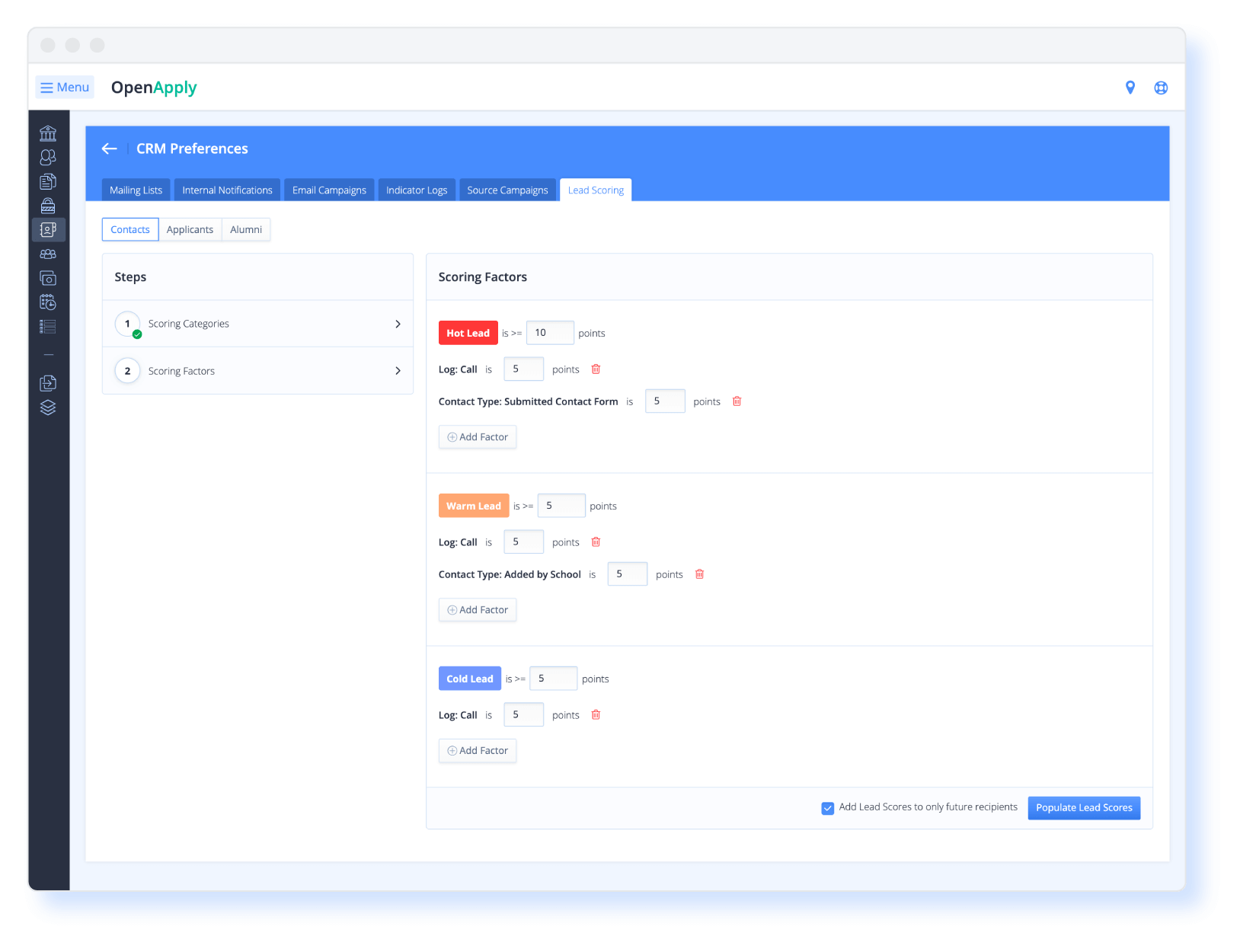Historical Context
Lead scoring has evolved as a response to the increasing complexity of the school admissions process. In the past, schools relied on traditional marketing tactics and manual evaluation methods, resulting in time-consuming processes and inconsistent data. However, with the advent of sophisticated Customer Relationship Management (CRM) systems, lead scoring emerged as a game-changer. It offers a scientific and data-driven approach to identify and prioritise prospective students based on their engagement, characteristics, and fit with the school's values and mission.
Significance of Lead Scoring
Lead scoring provides admissions and marketing teams with a comprehensive understanding of prospective students. By assigning values to different actions and attributes, schools can objectively assess the likelihood of conversion and tailor their communication accordingly. This empowers the teams to focus their efforts on nurturing high-quality leads, streamlining the admissions process, and optimising resource allocation. Moreover, lead scoring enables schools to align their marketing and admissions strategies, fostering a more cohesive and impactful approach to student recruitment.
Benefits of Lead Scoring
 Efficient Resource Allocation
Efficient Resource Allocation
Lead scoring enables schools to allocate their limited resources strategically. By identifying and prioritising the most promising leads, admissions teams can focus their efforts on engaging with students who are more likely to enrol, resulting in higher conversion rates and reducing wasted time and resources.
 Personalised Communication
Personalised Communication
Effective lead scoring allows schools to tailor their communication and outreach efforts based on the unique needs and preferences of each prospective student. By understanding their interests, motivations, and engagement levels, schools can provide relevant and timely information, fostering a personalised and meaningful connection with each lead.
 Relationship Cultivation
Relationship Cultivation
Building strong relationships with prospective students is paramount in today's competitive education landscape. Lead scoring provides valuable insights into a lead's engagement and interest levels, enabling schools to nurture relationships effectively. By delivering targeted content and personalised experiences, schools can create a positive impression, enhancing the chances of conversion and long-term retention.
 Continuous Improvement
Continuous Improvement
Lead scoring facilitates data-driven decision-making. By analysing the effectiveness of different lead scoring attributes and actions, schools can refine their criteria and strategies over time. This iterative process enables continuous improvement, allowing schools to adapt to changing market dynamics and stay ahead of the competition.
In conclusion, lead scoring is an essential element in the CRM and admissions management systems of forward-thinking independent and international schools with a strong focus on advancement. By embracing this powerful tool, schools can leverage robust and reliable data to cultivate relationships, make informed decisions, and optimise their student recruitment efforts. The historical context of lead scoring underpins its growing importance in streamlining the admissions process and enhancing the overall effectiveness of marketing and recruitment strategies. With its ability to empower schools with data-driven insights, lead scoring has become an indispensable practice for those seeking to thrive in this increasingly competitive landscape.
Learn more about OpenApply’s comprehensive admissions, CRM, and advancement system, which includes lead scoring functionality that can power up your student recruitment initiatives.

